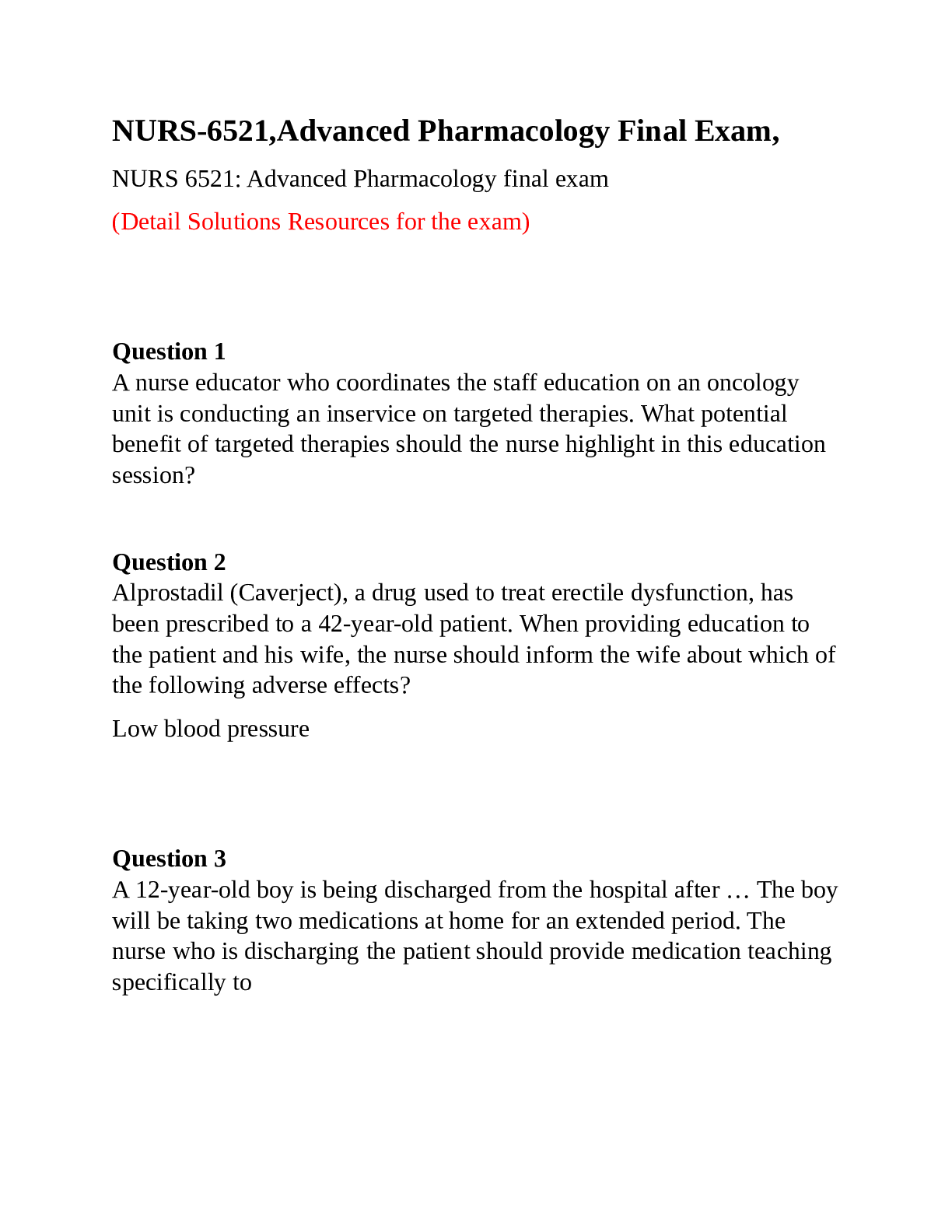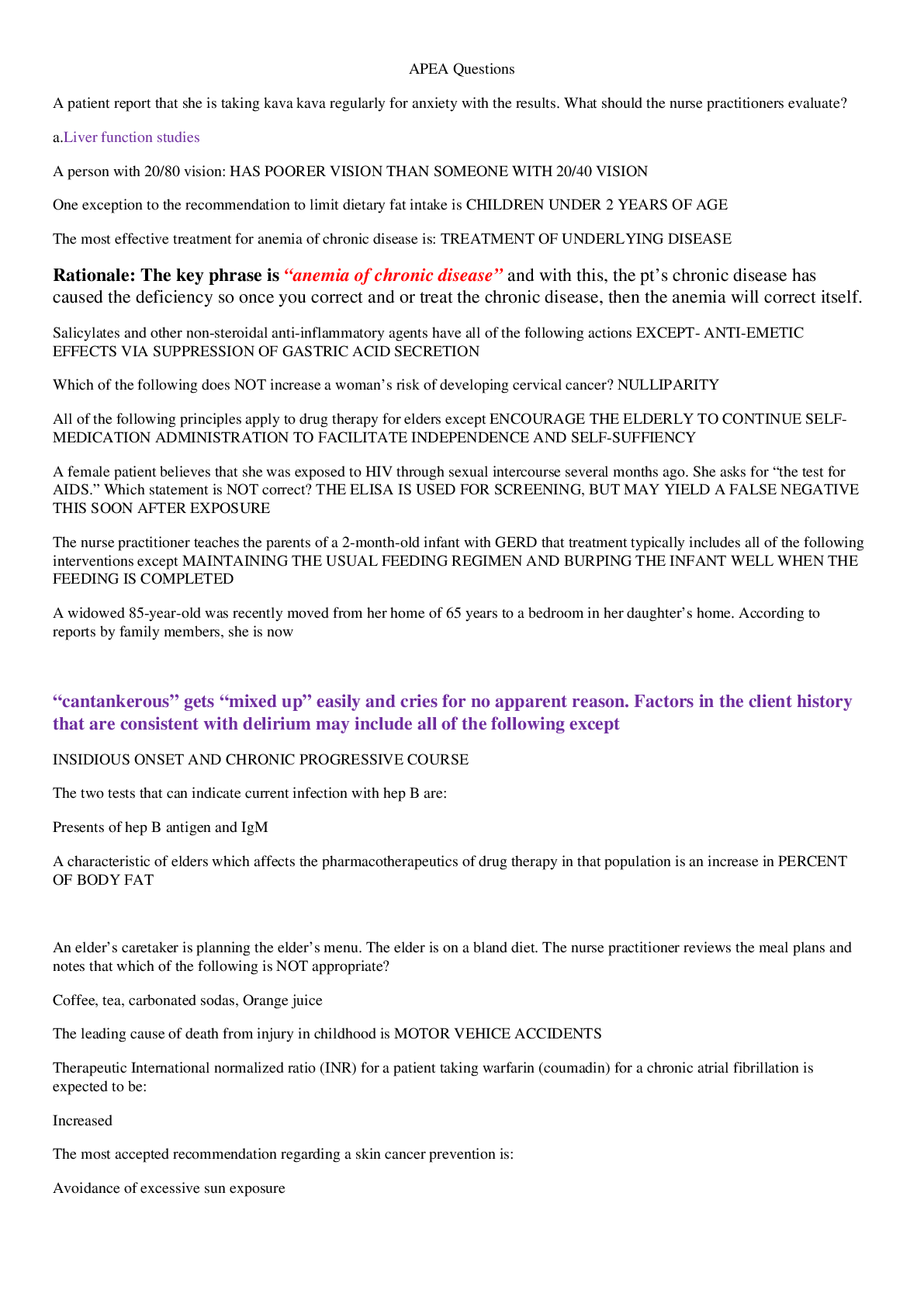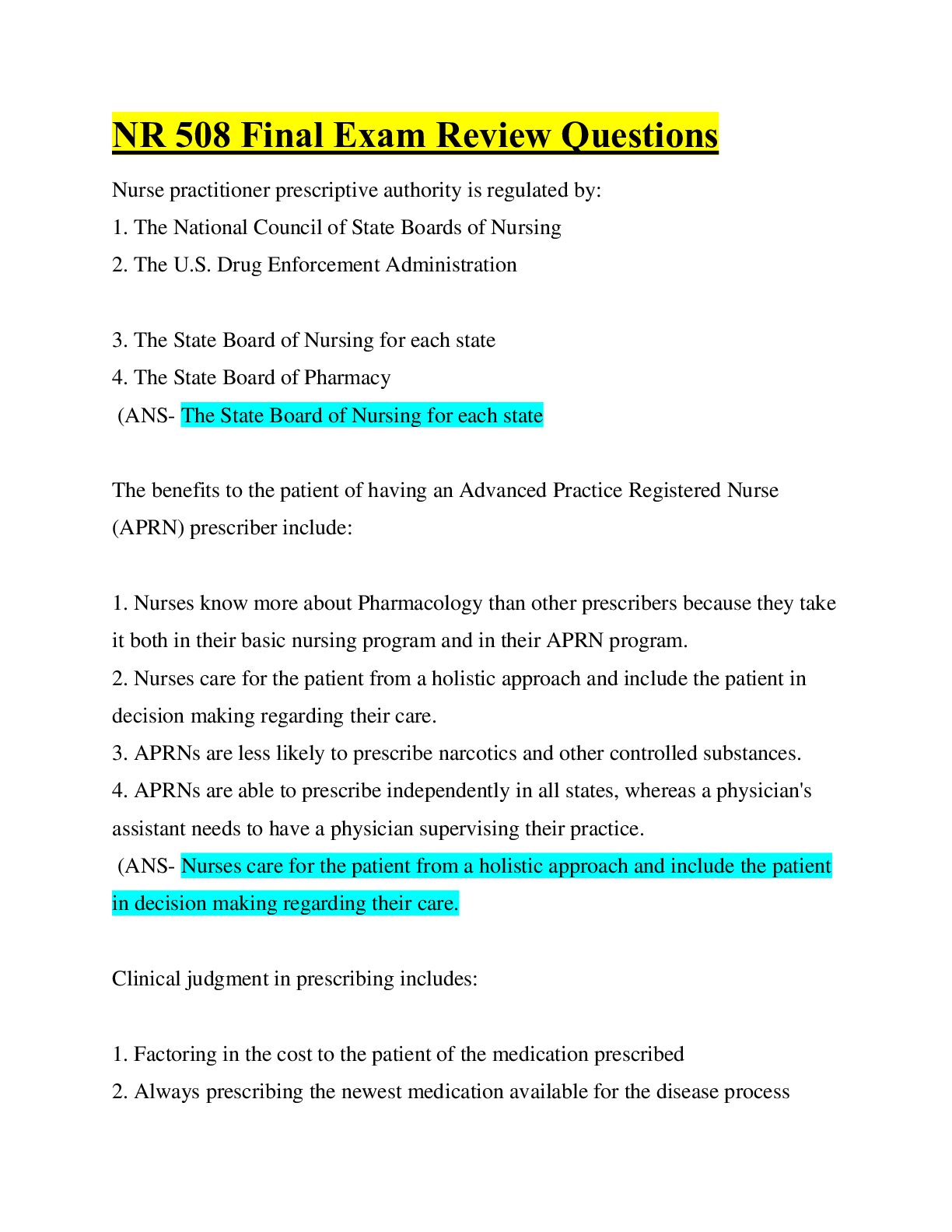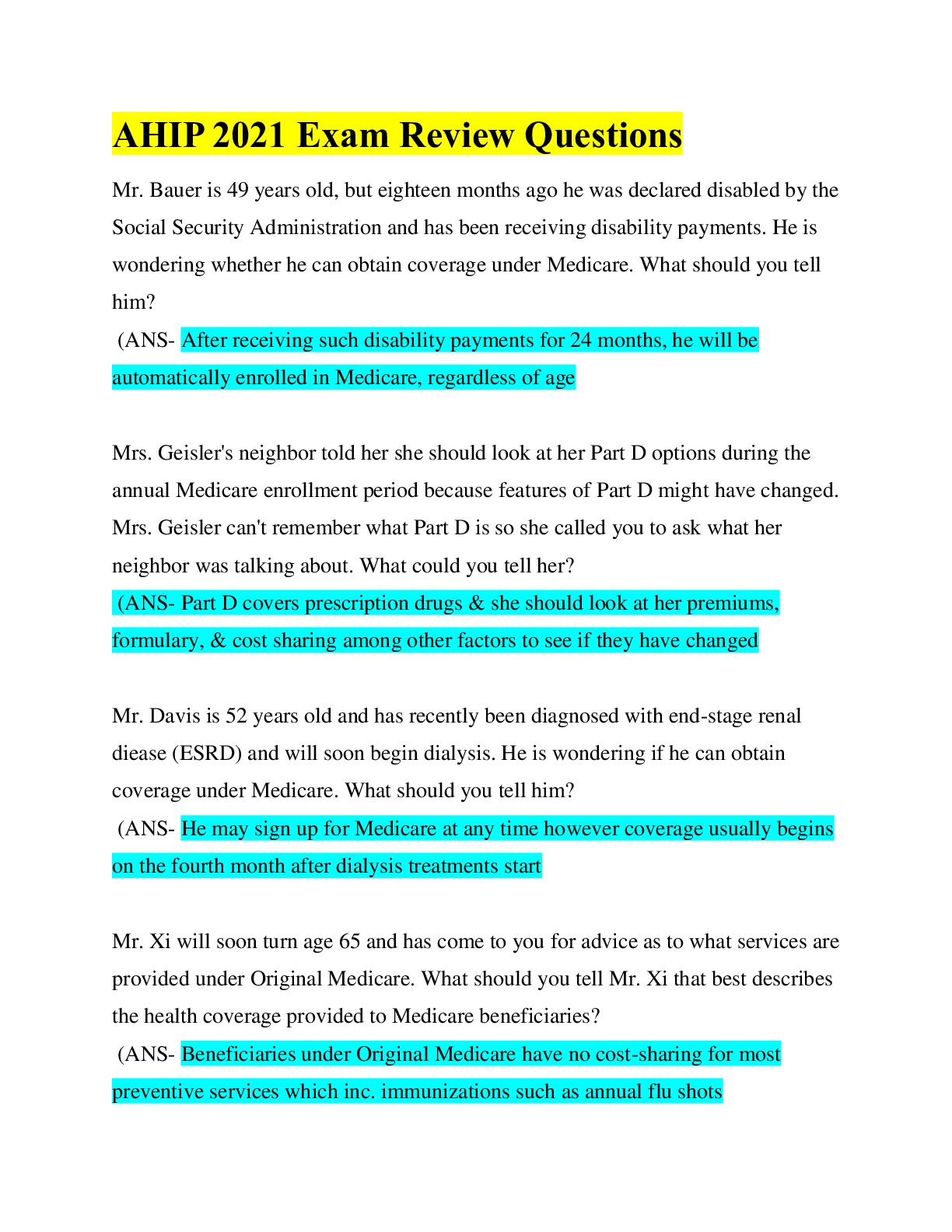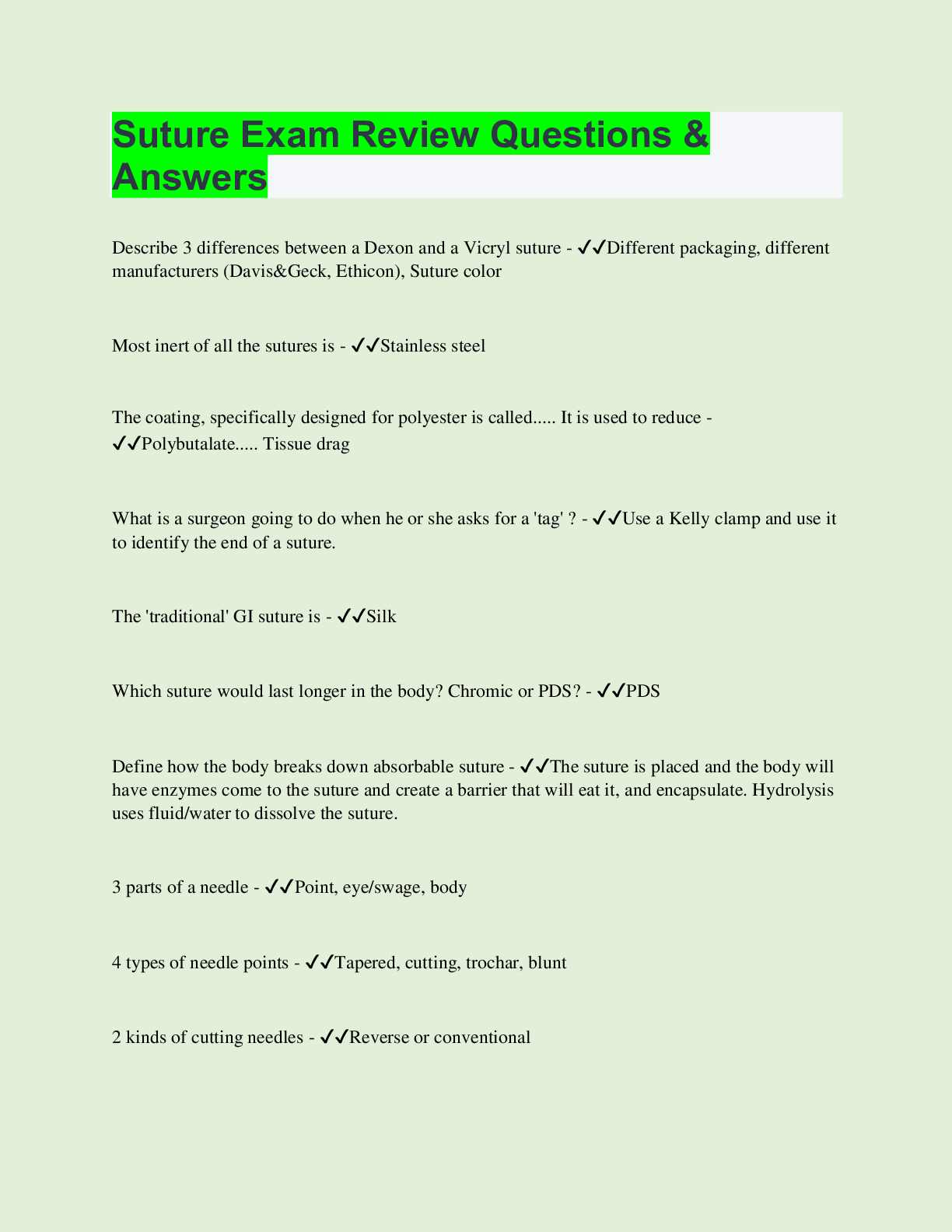Pharmacology > EXAM REVIEW > Pharmacology Exam 4-Renal & GI/Liver Nutrition, Physiological Stress & Wasting Disorders, Thyroid, G (All)
Pharmacology Exam 4-Renal & GI/Liver Nutrition, Physiological Stress & Wasting Disorders, Thyroid, GI, Antiepileptic & Transgender Drugs Review Questions & Answers
Document Content and Description Below
Renal Nutrition 1. A client receiving renal replacement therapy over 5 years has lost 40 lbs. and has significant muscle wasting. How should the nurse document this finding? A. Fat catabolism B.... Dry weight loss C. Metabolic acidosis D. Protein-energy wasting 2. A client with chronic kidney disease has elevated C-reactive protein and tumor necrosis factors. Which action should the nurse take for this client? A. Refer to rheumatology B. Suggest vitamin supplements C. Instruct to follow a low-protein diet D. Assess for signs of wasting syndrome 3. A client is being treated for acute kidney injury. Which laboratory value should the nurse closely monitor in this client? A. Increased glucose B. Decreased blood urea nitrogen C. Increased albumin D. Decreased serum creatinine 4. A client with a kidney injury is experiencing muscle cramps, itchy skin, and a metallic taste in the mouth. Which additional finding should the nurse expect when assessing this client? (Select all that apply.) A. Malaise and fatigue B. Generalized weakness C. Decreased creatinine levels D. Increased serum amylase levels E. Increased blood urea nitrogen levels 5. A client is being treated for chronic kidney disease. When monitoring this client's nutritional status, for which health problem is the nurse assessing? A. Hypertension B. Fat catabolism C. Hyperglycemia D. Hyperlipidemia 6. The healthcare provider prescribes an iron supplement for a client with chronic kidney disease. Which health problem is this medication intended to prevent? A. Edema B. Uremia C. Anemia D. Oliguria 7. A client with chronic kidney disease has lower extremity edema despite following a no-added salt diet. Which sources of dietary sodium should the nurse identify when analyzing this client's diet? A. Canned soup, hot dogs, and pickle B. Canned fruit, ice cream, and cookies C. Lunch meat, frozen foods, and cereal D. Hamburgers, ketchup, and tossed salad 8. When counseling a client with chronic kidney disease the nurse recommends that 50% of dietary protein come from sources with high biological value. Which food should the nurse suggest to this client? A. Eggs B. Pasta C. Dried beans D. Peanut butter 9. A client receiving hemodialysis treatments wants to take a multivitamin supplement several times a day. Which direction should the nurse provide to this client? A. "All water-soluble vitamins are removed by dialysis." B. "The most common vitamin deficiency is B12, so take that." C. "Vitamins are not toxic and extra amounts will not cause harm." D. "Avoid vitamins that are fat soluble because they are not removed by dialysis." 10. A client with anemia receives erythropoietin. Foods containing which nutrient should the nurse encourage the client to ingest? A. Iron B. Calcium C. Potassium 1 Pharmacology Exam 4- Review Questions & Answers D. Magnesium 11. A client recovering from a kidney transplant is not on a protein-restricted diet. What should the nurse consider as the reason for this dietary change? A. A regular diet should be followed B. A change in diet may discourage eating C. Restriction can result in protein catabolism D. A high-protein, low-carbohydrate diet is recommended 12. A client receiving form a kidney transplant is diagnosed with hyperlipidemia. Which health problem will be prevented when this client is treated with a lipid-lowering agent and a therapeutic diet? A. Diabetes B. Hypertension C. Peripheral neuropathy D. Cardiovascular disease 13. A client recovering from a kidney transplant is prescribed corticosteroids. For which potential health problem should the nurse identify interventions for this client? A. Weight loss B. Bone fracture C. Hypoglycemia D. Peripheral vascular disease 14. A client recovering from nephrotic syndrome asks why medication for hypertension has been prescribed. Which response should the nurse make to this client? A. " ACE-I inhibitors also reduce protein loss into the urine." B. " ACE-I inhibitors increase urination and prevent edema." C. "The medication is prescribed to prevent hypertension from developing." D. " Without an ACE-I inhibitor, increased dietary protein would be needed." 15. A client with nephrotic syndrome is prescribed 0.8 gm/kg/day of protein. What should the client receive in addition to this daily protein amount? A. 1-3 grams of sodium B. 2-3 grams of potassium from dietary sources C. An addi [Show More]
Last updated: 2 years ago
Preview 1 out of 33 pages
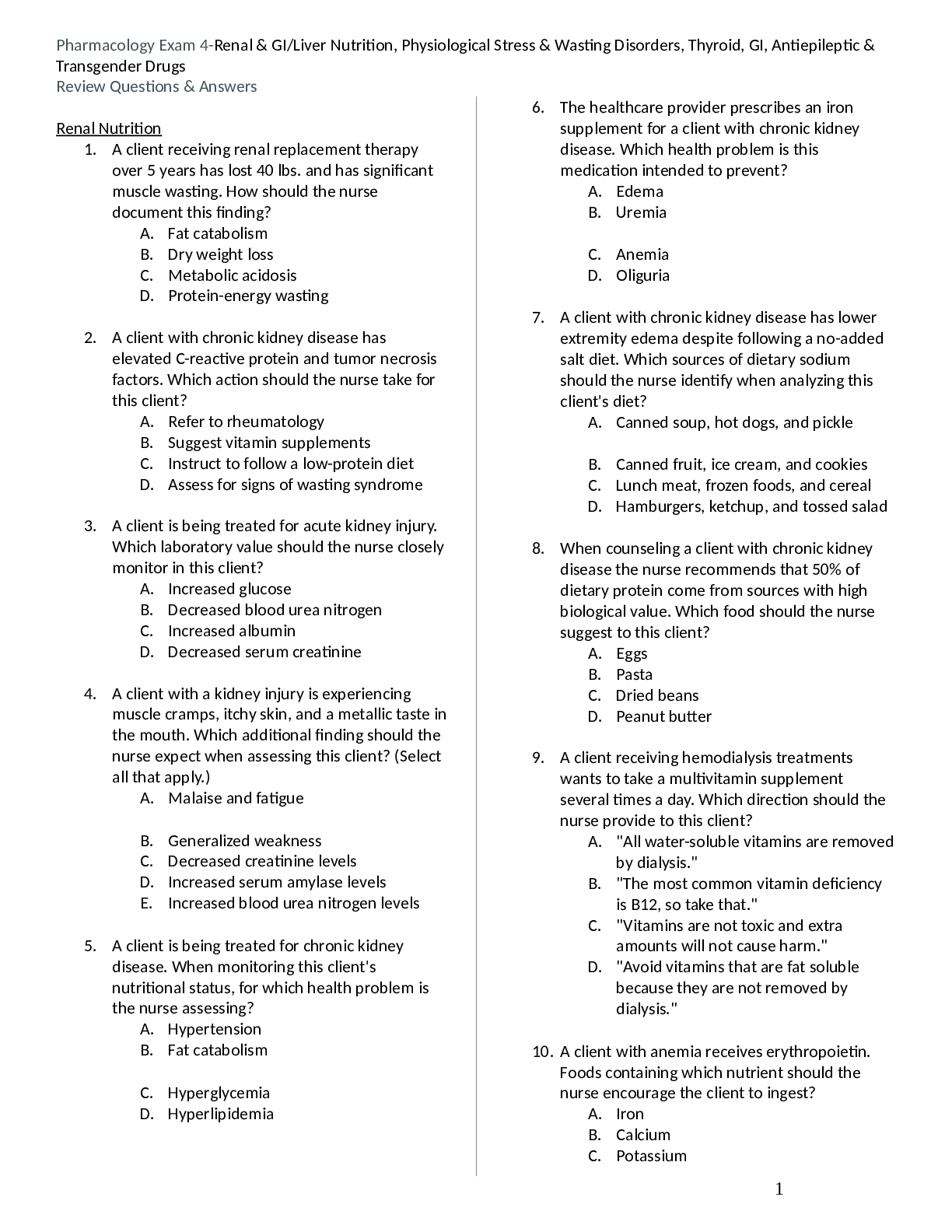
Buy this document to get the full access instantly
Instant Download Access after purchase
Buy NowInstant download
We Accept:

Reviews( 0 )
$12.00
Can't find what you want? Try our AI powered Search
Document information
Connected school, study & course
About the document
Uploaded On
Jun 26, 2021
Number of pages
33
Written in
Additional information
This document has been written for:
Uploaded
Jun 26, 2021
Downloads
0
Views
128


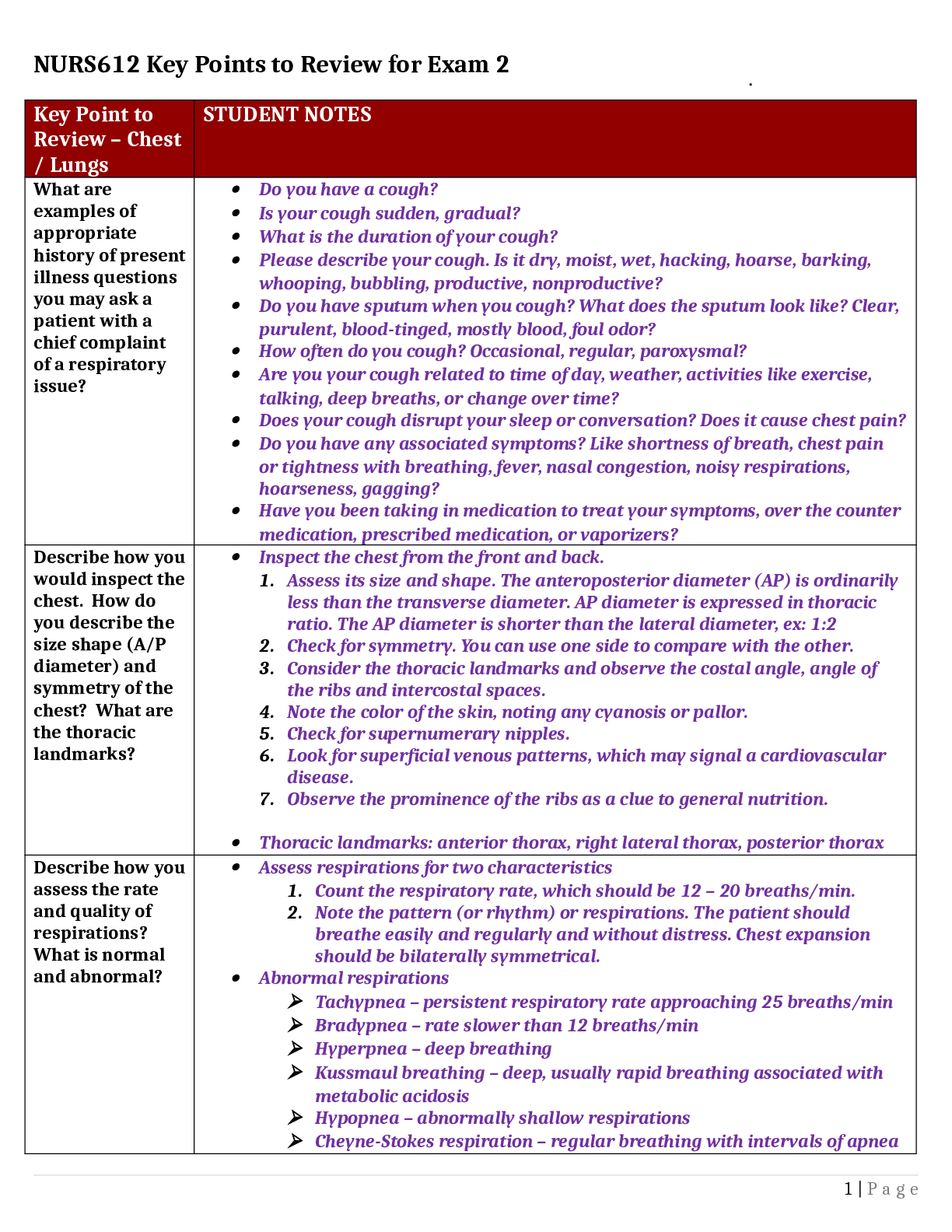
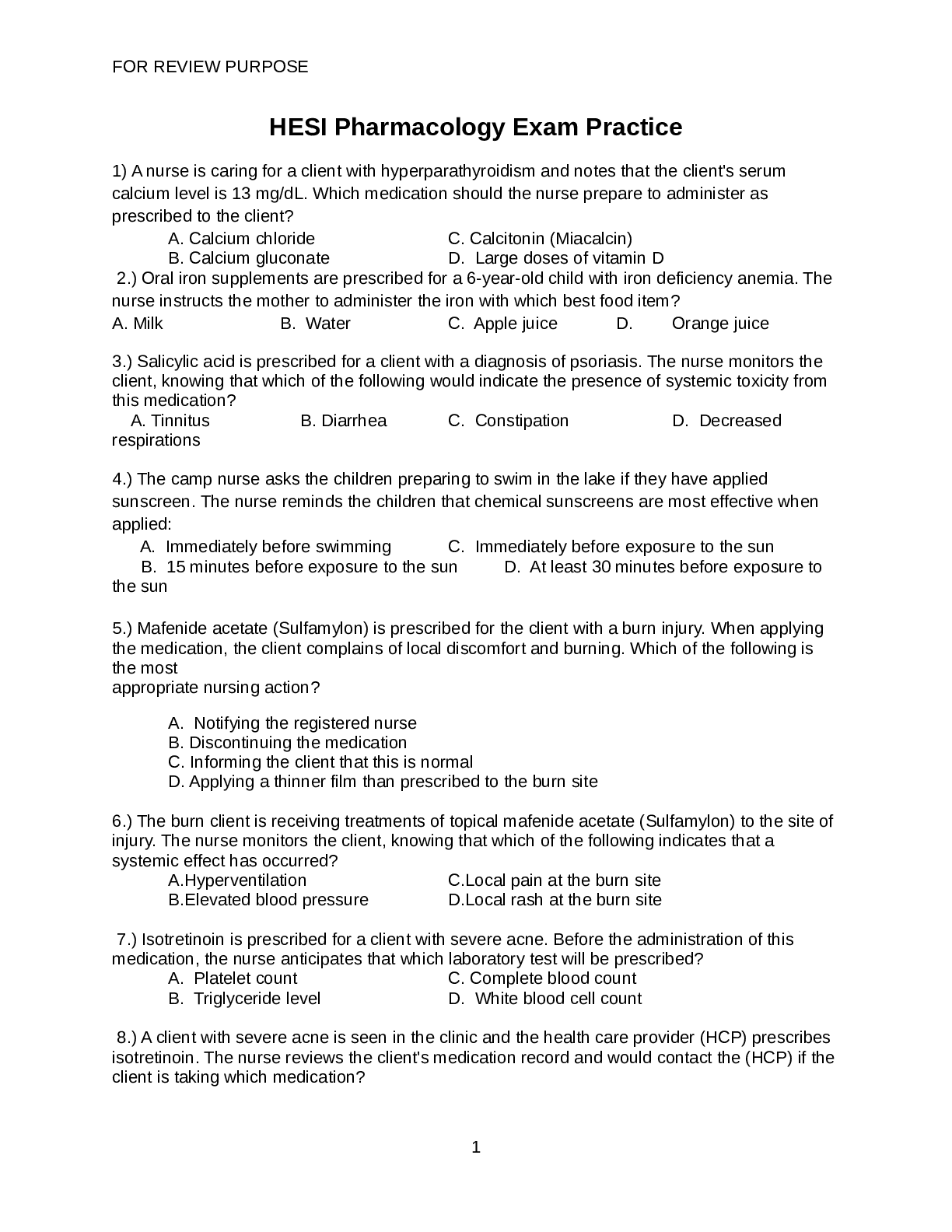
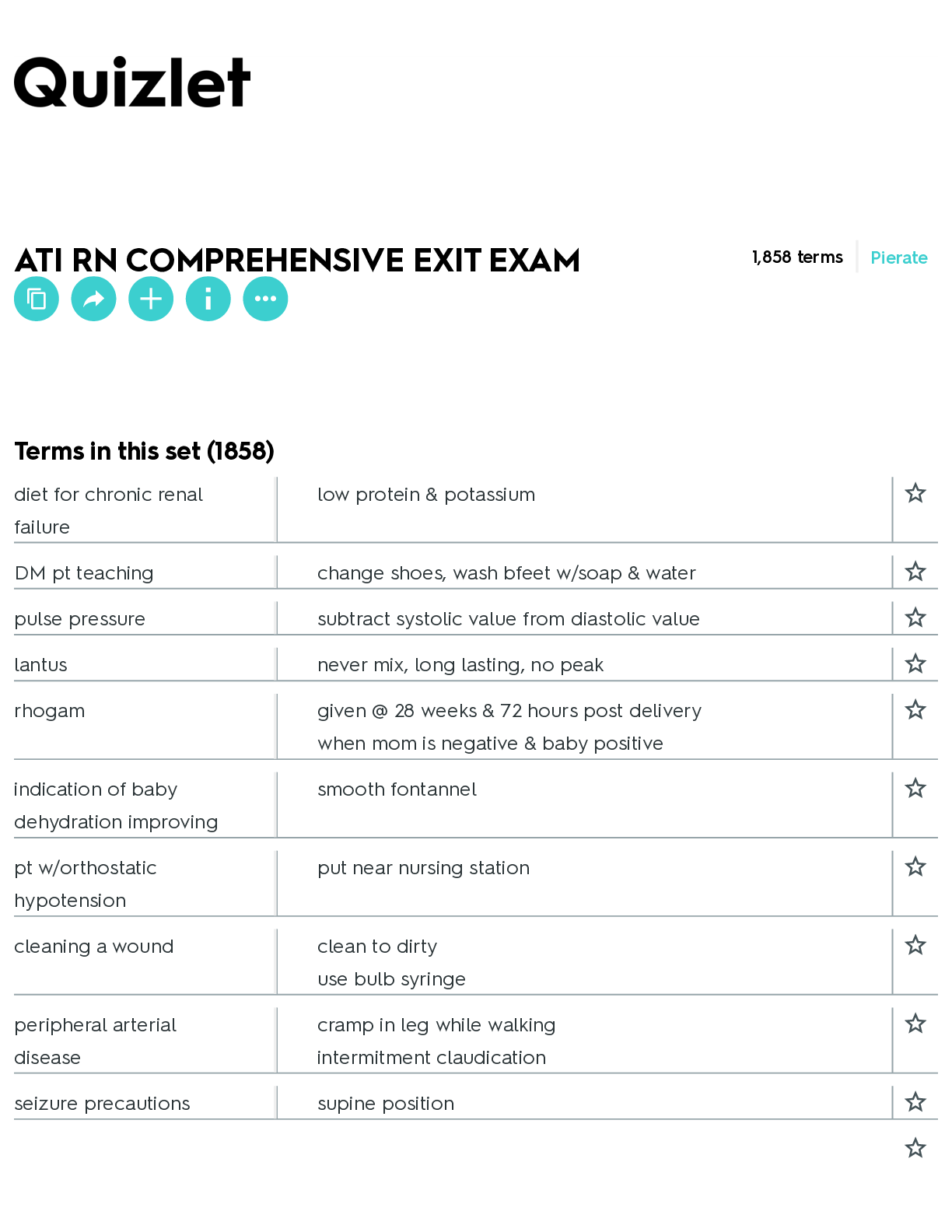
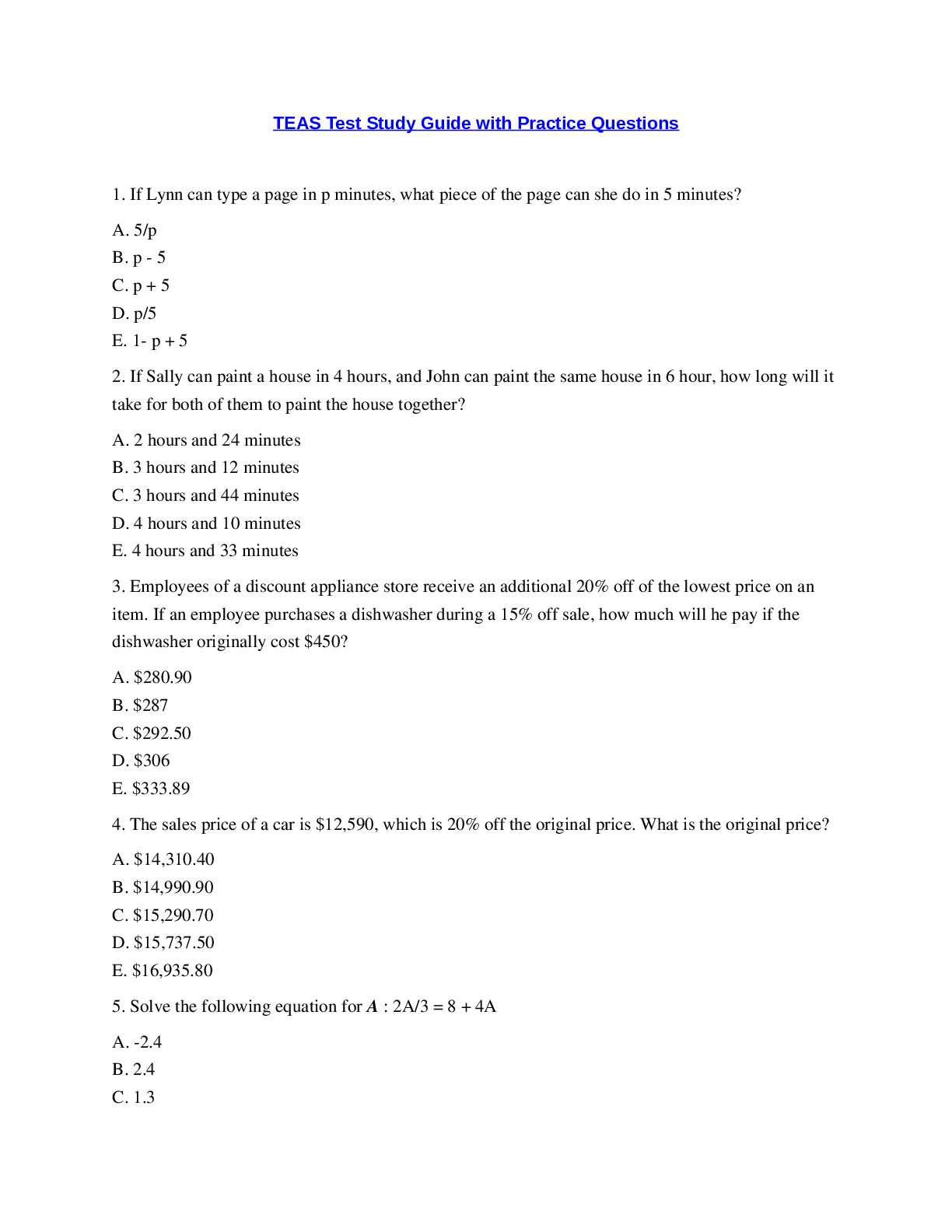
.png)

